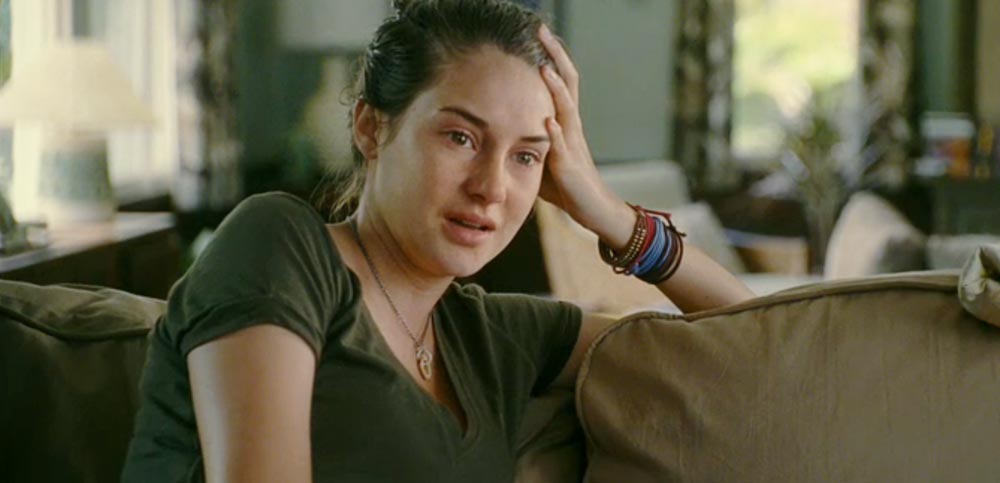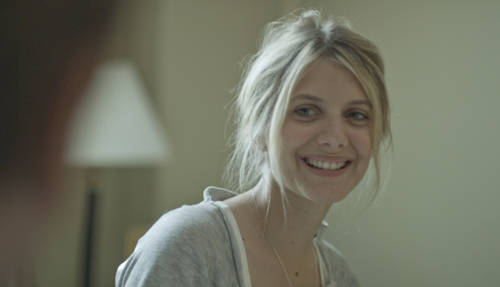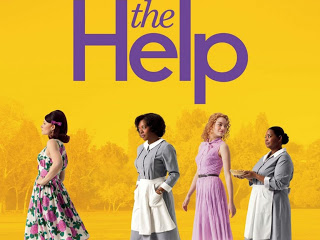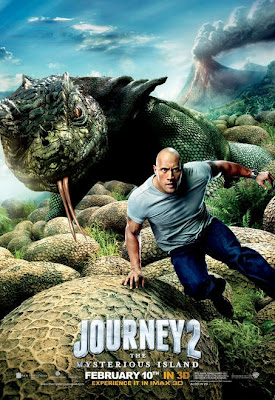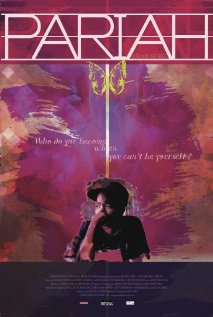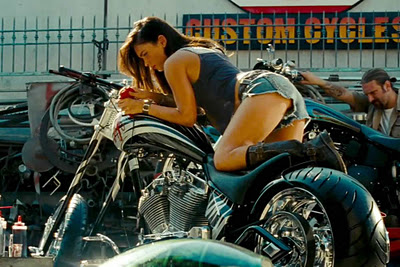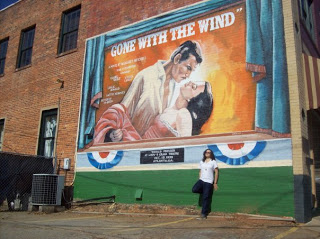 |
| Beginners (2010) |
This is a guest post from Megan Ryland.
(Does contain minor, vague spoilers)
Beginners introduces us to Oliver (Ewan McGregor), who is struggling to cope with the life and death of his father, while also attempting to fall in love. Told in memories that collide with the present day, the narrative moves forward and backward in time to reveal who and what has shaped Oliver’s life.
After Oliver’s mother dies, his 75-year-old father Hal (Christopher Plummer) reveals that he is gay and proceeds to embrace an identity that he has been forced to conceal. Unfortunately, four years later Hal is diagnosed with terminal cancer. Oliver cares for his father until Hal’s death, after which Oliver can only mourn and care for his father’s dog, Arthur, who shares his grief. Three months after the funeral, Oliver meets Anna (Mélanie Laurent), a beautiful French actress. Despite their shared tendency to push others away, they enter a complicated relationship and try to determine if either one of them knows how to make it work.
The movie is written and directed by Mike Mills, who reportedly based the movie on his experiences with his own father. While dealing with heavy topics, the overall tone and trajectory of the movie is arguably optimistic. The narrative is at times whimsical or quirky, but it maintains a strong connection to real emotion that I found compelling. Ewan McGregor is fantastic as the centerpiece of this intelligent romantic comedy, but the entire cast sells the story. Mélanie Laurent, Christopher Plummer and Mary Page Keller create a rich world as supporting characters with their own stories.
From where I stand, Beginners is yet another movie about men and their lives, but I have a hard time faulting it for that. If it were not another drop in the enormous bucket of Stories About Men, I could find little to complain about. I would actually like to go over what I felt Beginners got right about its characterization of women and men.
First, I appreciated the fact that men took on caretaking as a main feature in the film. Oliver spends months trying to care for his father, and then months trying to grieve his passing, and that emotional journey is not often documented in popular media. We also see men gathered around a sick friend’s bed and men as hospice workers, all without special comment or congratulations. In the movie, nurturing and care are not determined to be the domain of women. In fact, women appeared in a wide variety of positions that aren’t necessarily limited by stereotypical expectations. There are women clients, artists, upper management, friends, doctors, and nurses. Essentially, women are a normal presence within the world created by the film and they display a variety of characteristics. That’s refreshing to see in a movie focused on a man’s story.
 |
| Mélanie Laurent as Anna |
For example, Beginners could have put Anna (Mélanie Laurent) in the role of the girlfriend-as-therapist, but her position in the story is not dependent on her ability to be the caretaker for Oliver. In my opinion, Anna’s sympathy and understanding does not transform her into a tool to cope with Oliver’s grief over his father. She escapes being the empty vessel for Oliver’s emotions to pour into, thank goodness! She has her own issues to sort out and their interactions move far beyond simply dealing with Hal’s death. In fact, in coping with her own issues, Anna is not morally required by the narrative to be a caretaker for her depressed father either. She’s arguably not forced to lean on men to define her character’s role or trajectory, despite playing the romantic lead.
The relationship between Anna and Oliver was of great interest to me. Anna is rather unique in the depiction of her sexuality and sensuality. Although both Oliver and Anna pursue the relationship at different moments, Anna is initially often the sexual ‘aggressor’ with no feigned coy expressions. She is not ashamed when she invites a stranger to her hotel room, or when they do introductions the following morning. Importantly, this behaviour is not set up by the film to be seen as deviant or ‘troubled.’ The audience isn’t expected to see anything wrong with her establishing a relationship in this manner. Although the lack of judgment or slut shaming could be attributed to the relatively mature age of both Anna and Oliver, I still appreciate the normalization of Anna taking the lead in her own sexual and emotional satisfaction.
Arguably, Anna is also beautiful and sexy without being objectified by the camera. Shots linger on her face, not her bust, waist or behind. Maybe my standards are horribly low from watching mainstream television and movies, but this treatment impressed me. Even her brief, partial nudity is natural and the director avoids allowing the audience to leer at her as she changes clothes. For as much time as the couple spends in the bedroom, I am hard pressed to describe Anna’s figure in any detail. The relationship between Oliver and Anna is depicted as involving a great deal of sex, but her character is never simplified to her value in bed. In my opinion, her defining characteristics are her playfulness, her caring insight and her struggle with keeping people in her life – not her sexuality or hotness rating.
Although it could have easily been a
Garden State for grown ups,
Beginners refuses easy answers or simple characters. It also deftly avoids the pitfall of the
Manic Pixy Dream Girl, as Anna is legitimately flawed, not just quirky (as seen in
Elizabethtown and
Garden State). Anna doesn’t know how to make the relationship work anymore than Oliver does. Their only saving grace is in trying at all. Unlike the typical Manic Pixy Dream Girl, Anna does not guide Oliver on an adventure where he finds himself; they are both in an adventure of a relationship, while Oliver is separately dealing with his grief. It’s not her responsibility to open his eyes to the beauty of life.
 |
| Mary Page Keller as Georgia |
Oliver’s mother, Georgia, is the other woman in his life. Georgia is a striking figure who we see only in distant memories and who is played beautifully by Mary Page Keller. In a very limited number of scenes, Georgia leaves a lasting impression. For example, when Oliver remembers his father briefly kissing his mother before going to work, Georgia’s expression as Hal leaves her is profoundly moving. Oliver’s father is entirely absent in these memories, even when he kisses Georgia. The audience understands in that moment what their entire relationship was like, and what Oliver watched on a daily basis. Every time the kissing goodbye clip repeated, I was glued to Keller’s face. In barely a few minutes on screen, the nuance and complexity that we see from Georgia (Keller) is astounding. She married a gay man knowing he was gay, and yet hungers for the kind of emotion, connection and attention that she needs. He will never deliver it, but she never leaves him; they are together until her death. Even from her brief screen time, the audience understands Georgia as a complexly motivated character who adds depth to the story.
Fortunately, Georgia is not entirely defined by the roles of wife and mother, despite only being shown in the memories of her son. She is a woman who gave up a great deal and who existed outside the lives of her son and husband. For example, Georgia is described as having “handed in her Jewish badge” when Hal married her. While she is not as present as other characters, I believe that she is given dignity and complexity. She is not a Maternal Figure placeholder and she is not used as the scapegoat for Oliver’s intimacy issues, but she is not perfect either. Keller delivers an utterly human performance of a woman who wants to give happiness to her son, while barely maintaining the façade of happiness in her own life. This is a story that has been lived by many women in many ways.
 |
| Christopher Plummer as Hal |
I would be remiss if I didn’t also discuss Hal. Christopher Plummer has been collecting Best Supporting Actor awards for the role (as of this writing,
Wikipedia lists 5 received), and in my humble opinion, they are definitely earned. Plummer plays a loving and optimistic gay senior, which departs from typical depictions of young, promiscuous gay men in the media. Although not an entirely radical character, Hal is certainly a fresh representation of sexuality for two demographics, one often considered ‘non-sexual’ (seniors) and other considered ‘hyper sexual’ (gay men). Hal is often joyful, even while dying, and doesn’t express shame or regret for the compromises he has made. He does not simplify his life for his son or the audience, and he does not apologize for it. Both Oliver and the viewer are left to determine what it means to live and achieve happiness as Hal has. Again,
Beginners provides complex characterization and depth of feeling.
What I really love about Beginners is that everyone is trying to find love and happiness, and everyone is having a hard go of it. Men, women, everyone is imperfect and trying so hard. The sincere efforts and genuine flaws make this a story about three-dimensional women and men who aren’t reduced to stereotypes or roles. No one attempts to save someone else (everyone is too busy with saving themselves) and the story doesn’t even become about Oliver using someone else to save himself. The only hope for finding happiness is trying to do it despite everything else.
Megan Ryland is currently completing her BA, focusing on politics, women and gender. She writes about feminism, body image, and media analysis on her blog, http://beautyvsbeast.wordpress.com. Starting in March 2012, she will also be helping to release the Hello City! Culture Cast, a Vancouver-based podcast that reviews movies, theatre, concerts and more.

